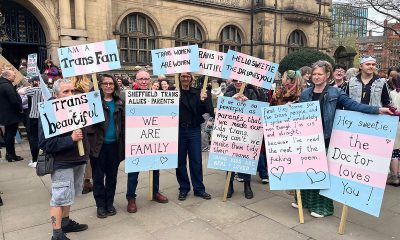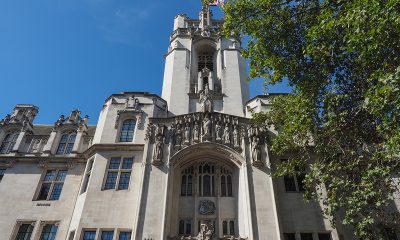World
Out in the World: LGBTQ news from Europe and Asia
Malaysian music festival organizers suing English rock band over on stage kiss

MALAYSIA
Rock band The 1975 is being sued by organizers of a music festival kissed a man on stage as a protest against the country’s anti-LGBTQ laws last July. The festival is seeking $2.4 million in damages alleging breach of contract after the festival was shut down by authorities.
The English rock band was headlining the Good Vibes Festival in Kuala Lumpur on July 21, 2023, when Healy delivered a performance that festival organizers Future Vibes Asia allege included drinking alcohol and smoking cigarettes on stage, appearing to “spit excessively including towards the audience” and giving a “profanity-laden speech,” all of which they say was in violation of their performance contract.
“Variety” reported at the time that Healy told the crowd “I don’t see the fucking point … of inviting The 1975 to a country and then telling us who we can have sex with … I’m sorry if that offends you, and you’re religious … but your government are a bunch of fucking r——. I don’t care anymore. If you push, I’m gonna push back. I’m not in the fucking mood.”
At that point, Healy kissed bassist Ross MacDonald on stage, resulting the band getting booted from the stage by government censors and banned from performing in Malaysia.
Authorities then shut down the entire festival, which still had two more days of performances by local and international acts, including American band The Strokes.
In filings in the UK High Court, Future Sound Asia is seeking $2.4 million in damages from the band, whom they say were paid $350,000 to perform.
The 1975 have not provided a response in court.
The band has also been sued separately by other artists who claim they lost opportunities and income because of the festival being shut down.
THAILAND
Thailand has become the 44th member state of the Equal Rights Coalition, an intergovernmental agency tasked with advancing the rights of LGBTQ and intersex people across the world.
Thailand is the first Asian country to join the international body, which also includes member states from Europe, the Americas, Africa, and the Middle East.
The Equal Rights Coalition was founded in 2016 under the leadership of Uruguay and the Netherlands to promote LGBTQ and intersex human rights, through forums and idea exchange with a particular focus on reducing violence and discrimination, ending criminalization of LGBTQ and intersex people, and including LGBTQ and intersex people in development projects.
Thailand has made great progress on LGBTQ rights in recent years, including legalizing same-sex marriage and adoption earlier this year, and introducing a government bill to facilitate legal gender change.
The ERC has worked to expand its own capacity this year, launching a secretariat hosted by ILGA-World in Geneva.
NEPAL
The Supreme Court of Nepal has for the first time ordered that the government recognize a transgender woman as a woman, without her having to submit to medical verification. The ruling applies only to this specific case but may set a precedent for future cases.
Human Rights Watch reported that Rukshana Kapali, a trans law student, was granted the order that she should be recognized as a woman on all government documents. Kapali has sued the government more than 50 times since 2021 in order to get her gender recognized, due to inconsistently applied rules across the country.
Although Kapali has been granted relief, other trans people will continue to have to sue to have their gender legally recognized, until the government creates a consistent regulation.
In 2007, the Supreme Court ordered the government to recognize a “third gender” or “other” option on the basis of self-identification. “Third gender” is a common way that many trans people in South Asian cultures self-identify.
However, because the government has failed to institute a clear nationwide policy around updating legal gender, many trans people face roadblocks. Some are forced to undergo surgery first, which requires travelling outside the country, and then to have invasive medical examinations in-country.
Human Rights Watch has called on the government to address this by creating a clear policy on updating legal gender based on self-determination.
“The government can and should make the system work for everyone by issuing a directive that allows people to self-identify their gender on official documents, without medical or other verification,” Human Rights Watch says in a press release.
UNITED KINGDOM
The British Medical Association has called for the government to pause implementation of the controversial Cass Review of gender care for trans youth, and a lifting of the government’s ban on the use of puberty blockers for under-18s.
The BMA, a trade union that represents nearly 200,000 doctors and medical students across the UK, has made the amid a growing anti-trans moral panic across the UK, fueled by far-right commentators, including “Harry Potter” creator J.K. Rowling, which captured the attention of the Conservative Party that governed the country for 14 years until last month.
But the new Labour government has been swift to uphold some of the previous government’s anti-trans policies, including announcing that it would move to make the ban on puberty blockers permanent.
The previous government had launched a review of trans youth care under Hilary Cass, who published her findings this spring. The Cass Review ultimately called for a move away from medical interventions for trans youth and instead proposed a model of better mental health support.
Trans activists and medical researchers criticized the report for its selective review of studies and lack of consultation with trans patients, which they have said give the impression that the review was designed to come to a conclusion that would effectively bar young people from transitioning or forcibly detransition them.
A government spokesperson has rebuffed the BMA’s call for a pause on implementation of the Cass Review while it completes its own research.
“NHS England will be implementing Dr. Cass’s recommendations so that children and young people get the safe, holistic care and support they need. We do not support a delay to vital improvements from the NHS to gender services,” a Department of Health and Social Care spokesperson told the BBC.
The ban on puberty blockers had also been challenged in court by the advocacy group TransActual, but a judge ruled last week that the ban was lawful.
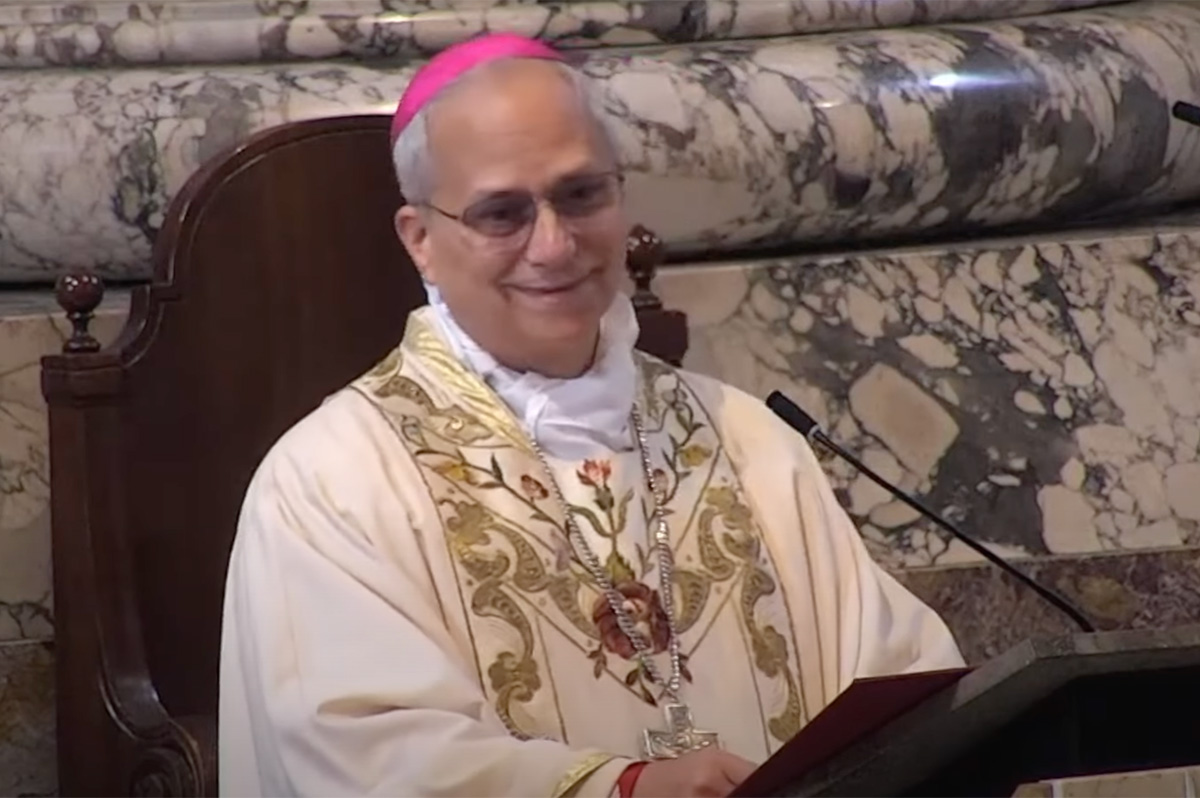
The College of Cardinals on Thursday elected Cardinal Robert Prevost from Chicago as the Catholic Church’s next pope.
Leo XIV’s election took place less than three weeks after Pope Francis died at Casa Santa Marta, his official residence at the Vatican. The conclave to choose his successor began on Wednesday.
Leo XIV, who was born in Chicago in 1955, is the first American pope.
Leo XIV was bishop of the Diocese of Chiclayo in Peru from 2015-2023. Francis made him a cardinal in 2023
“We salute the appointment of the new Pope Leo XVI,” said the U.S. Embassy in Peru on X.
“A celebration for the world’s Catholics, and a joy especially shared between the American people and the Peruvian people. From Chicago to Chiclayo.”
U.S. Rep. Robert Garcia (D-Calif.), a gay man of Peruvian descent, also congratulated Leo XIV.
“As a Catholic and Peruvian American, I wish Pope Leo XIV strength as he steps into his role as a global and spiritual leader,” said the California Democrat on X. “He has demonstrated that he believes in justice for the poor and immigrants. May his leadership reflect these ideals as he spreads peace across the world.”
As a Catholic and Peruvian American, I wish Pope Leo XIV strength as he steps into his role as a global and spiritual leader. He has demonstrated that he believes in justice for the poor and immigrants. May his leadership reflect these ideals as he spreads peace across the world.
— Congressman Robert Garcia (@RepRobertGarcia) May 8, 2025
Francis died on April 21 at Casa Santa Marta, his official residence at the Vatican. The conclave to choose the Argentine pontiff’s successor began on Wednesday.
The Vatican’s tone on LGBTQ and intersex issues softened under Francis’s papacy, even though church teachings on homosexuality did not change.
Francis, among other things, described laws that criminalize consensual same-sex sexual relations as “unjust” and supported civil unions for gays and lesbians. Transgender people were among those who greeted Francis’s coffin at Rome’s St. Mary Major Basilica before his burial on April 26.
The New York Times reported Leo XIV in a 2012 speech to bishops specifically cited “homosexual lifestyle” and “alternative families comprised of same-sex partners and their adopted children” when he said Western media and popular culture has promoted “sympathy for beliefs and practices that are at odds with the gospel”
Marianne Duddy-Burke, executive director of DignityUSA, a group that represents LGBTQ Catholics, traveled to Rome for the conclave.
She told the Washington Blade in a text message from St. Peter’s Square shortly after Leo XIV’s election that she “heard him speak” last October and “found him thoughtful and gently challenging.”
“[He] hasn’t said a lot since early 2010s. [I] hope he has evolved,” said Duddy-Burke. “His commitment to synodality is a hopeful sign.”
Her group later issued a statement.
“This election appears to signal a willingness to continue building on Pope Francis’s commitment to synodality and social justice,” said DignityUSA. “We pray that the needs of those whom our church has historically marginalized, including LGBTQ+ people and their families, will continue to be heard and addressed by the Vatican and other church leaders.”
Francis DeBernardo, executive director of New Ways Ministry, a Maryland-based LGBTQ Catholic organization, in a statement said there is “a special pride in having the first pope from the United States, his longtime ministry in Latin America most likely had an equally formative influence on his spirituality and approach to church issues.” DeBernardo, however, criticized Leo XIV’s 2012 comments.
“We pray that in the 13 years that have passed, 12 of which were under the papacy of Pope Francis, that his heart and mind have developed more progressively on LGBTQ+ issues, and we will take a wait-and-see attitude to see if that has happened,” he said.
“We pray that as our church transitions from 12 years of an historic papacy, Pope Leo XIV will continue the welcome and outreach to LGBTQ+ people which Pope Francis inaugurated,” added DeBernardo. “The healing that began with ‘Who am I to judge?’ needs to continue and grow to ‘Who am I, if not a friend to LGBTQ+ people?'”
DignityUSA agreed.
“We express concern with the former Cardinal’s statements — as reported in the New York Times — in a 2012 address to bishops, where he stated that Western news media and popular culture fostered ‘sympathy for beliefs and practices that are at odds with the gospel’ including the ‘homosexual lifestyle’ and ‘alternative families comprised of same-sex partners and their adopted children.'” We note that this statement was made during the papacy of Benedict XVI, when doctrinal adherence appeared to be expected,” said the organization in its statement. “In addition, the voices of LGBTQ people were rarely heard at that level of church leadership. We pray that Pope Leo XIV will demonstrate a willingness to listen and grow as he begins his new role as the leader of the global church.”
Vanuatu
Vanuatu lawmakers consider constitutional amendment to recognize two genders
Country decriminalized consensual same-sex sexual relations in 2007
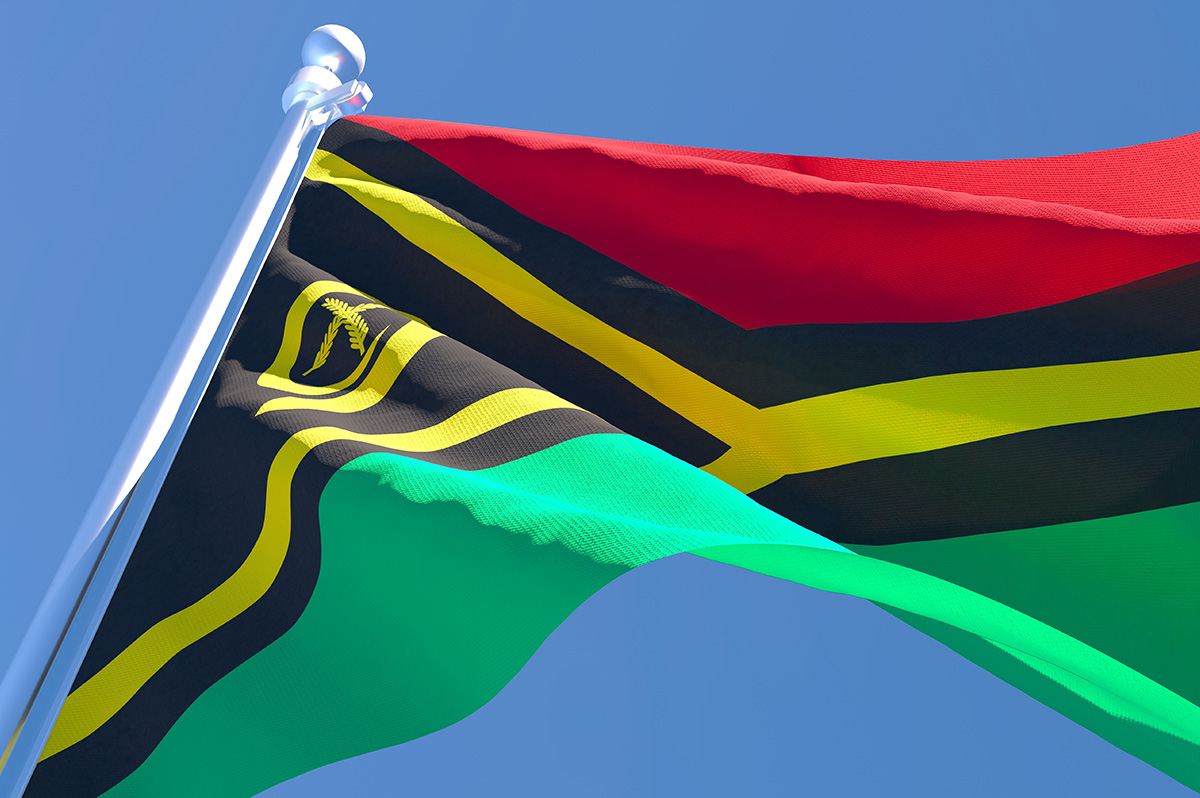
Lawmakers in Vanuatu are considering an amendment to the country’s constitution that would recognize only two sexes: Male and female.
The Vanuatu Daily Post in an April 23 article quoted Vanuatu Christian Council Chair Collin Keleb, a pastor with the Presbyterian Church of Vanuatu, said the country “cannot allow someone from outside to influence or empower them (the LGBTQ community), which will cause them to go astray instead of maintaining and uniting ourselves as children of God.”
The country’s Council of Ministers has approved the proposed amendment. The Vanuatu Daily Post notes the government has said the measure would “align the country’s laws with the preambles of ‘Melanesian values and Christian principles’ upon which Vanuatu was founded.”
Vanuatu is an island country in the South Pacific that is located roughly 1,100 miles northeast of Australia’s Queensland state.
Consensual same-sex sexual relations have been decriminalized in Vanuatu since 2007.
It remains unclear when the proposed amendment will receive final approval.
El Salvador
Artistas drag marchan por derechos laborales, visibilidad LGBTQ en El Salvador
Lady Drag y Wila la Icónica participaron en el desfile del 1 de mayo
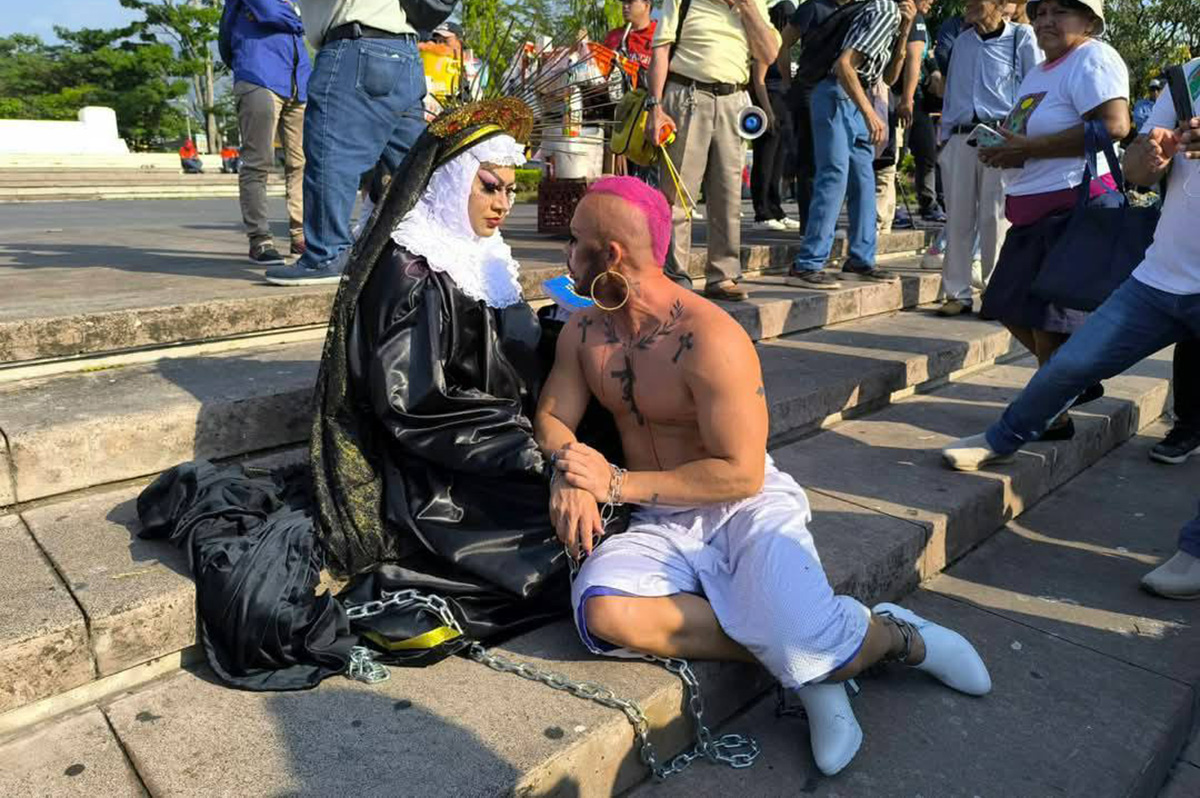
Dos artistas drag desfilaron este 1 de mayo por las principales calles de San Salvador como parte del recorrido de la marcha del Día Internacional del Trabajo, visibilizando realidades en la vulneración de los derechos humanos. La presencia de Lady Drag y Wila la Icónica destacó en medio de una movilización que, si bien contó con diversos sectores sindicales y sociales, registró escasa participación de organizaciones LGBTQ.
Con vestuarios llamativos y maquillaje escénico, las artistas se integraron a la marcha junto a otras expresiones ciudadanas. Durante todo el recorrido, desde el Parque Cuscatlán hasta el Monumento al Divino Salvador del Mundo, ambas realizaron un performance que buscó denunciar el desempleo, la precarización laboral y la exclusión de las diversidades sexuales y de género en el ámbito laboral.
“El Salvador necesita reformas no solamente en el código de trabajo, sino que también reformas en el sistema educativo”, expresó Lady Drag. “O sea, que nuestras autoridades también velen porque se nos respeten”, agregó refiriéndose a la población LGBTQ.
El performance incluyó desplazamientos performativos en donde el artista Wila la Icónica, rompió una constitución de la República de El Salvador. La representación culminó en El Salvador del Mundo, donde las artistas realizaron una pose simbólica frente al monumento, emulando una escena inspirada en “La Piedad”, como acto de denuncia y resistencia.
La participación de ambas artistas se produjo en un contexto de creciente precarización laboral para las personas LGBTQ en El Salvador, también en memoria de los detenidos injustamente por el régimen de excepción y como sus madres sufren por las negligencias del sistema. También mencionaron ser una pronunciación por los aumentos a las AFP y a la canasta básica ya que se avecina el aumento al salario mínimo.
De acuerdo con informes de organizaciones de derechos humanos, el sector LGBTQ enfrenta barreras estructurales para el acceso a empleos dignos, así como altos niveles de discriminación y violencia.
“Siempre hay ataques de intimidación, yo he sido víctima de ataques de intimidación de este gobierno, ataques de amenaza por hacer lo que hago y, sin embargo, no me han logrado doblegar y no me van a lograr doblegar”, concluyó Lady Drag.
Pocas propuestas, mucha propaganda: críticas al gobierno marcan la jornada
La marcha del 1 de mayo no solo fue escenario de demandas laborales, sino también de fuertes críticas al gobierno del presidente Nayib Bukele.
Diversos sectores denunciaron la falta de propuestas efectivas para atender el desempleo, la informalidad y la precarización del trabajo en El Salvador, especialmente en sectores vulnerables. Al igual que los despidos masivos que se han realizado en entidades gubernamentales.
Aunque el país ha registrado una aparente estabilidad macroeconómica, organizaciones sociales aseguran que esta no se traduce en mejoras reales para la mayoría de la población.
“El gobierno presume crecimiento, pero en las comunidades la gente sigue sin empleo, sin acceso a salud y sin garantías laborales. Lo que hay es más propaganda que soluciones”, manifestó activista de Resistencia Popular.
Según datos del Banco Central de Reserva, más del 60 por ciento de la población económicamente activa se encuentra en el sector informal, una cifra que ha variado poco en los últimos años. Activistas señalan que, en vez de generar políticas de empleo inclusivo, el Ejecutivo ha priorizado megaproyectos como Bitcoin City o la promoción del turismo, sin garantizar condiciones laborales dignas en esos sectores.
La ausencia de una propuesta concreta para atender las desigualdades laborales fue uno de los puntos más señalados durante la marcha.
“El gobierno habla de seguridad, pero guarda silencio ante el hambre, la migración forzada por falta de empleo y la discriminación laboral”, reclamó un representante sindical del sector docente.
Asimismo, existieron muchas críticas sobre las medidas estatales que continúan ignorando las violencias estructurales que enfrentan las mujeres y las personas de la diversidad sexual, muchas de las cuales sobreviven en economías informales, trabajos de cuidado no remunerados o el arte callejero como último recurso.
Visibilidad fragmentada: la diversidad sexual marchó sin acompañamiento colectivo
A diferencia de años anteriores, la presencia organizada de personas LGBTQ fue escasa en la marcha del Día del Trabajo de 2025. Aunque la representación artística de “La Piedad” logró captar la atención de centenares de personas durante el recorrido, no hubo una participación masiva de colectivos LGBTQ como bloque articulado.
Nicola Chávez, parte del equipo de AMATE El Salvador, mencionó que participar en esta marcha para AMATE implica poner temas de la población LGBTQ sobre la palestra de discusiones sobre condiciones laborales en El Salvador.
“Nuestra población generalmente tiene trabajos sumamente precarizados, sufren de bajos niveles de escolaridad”, comentó.
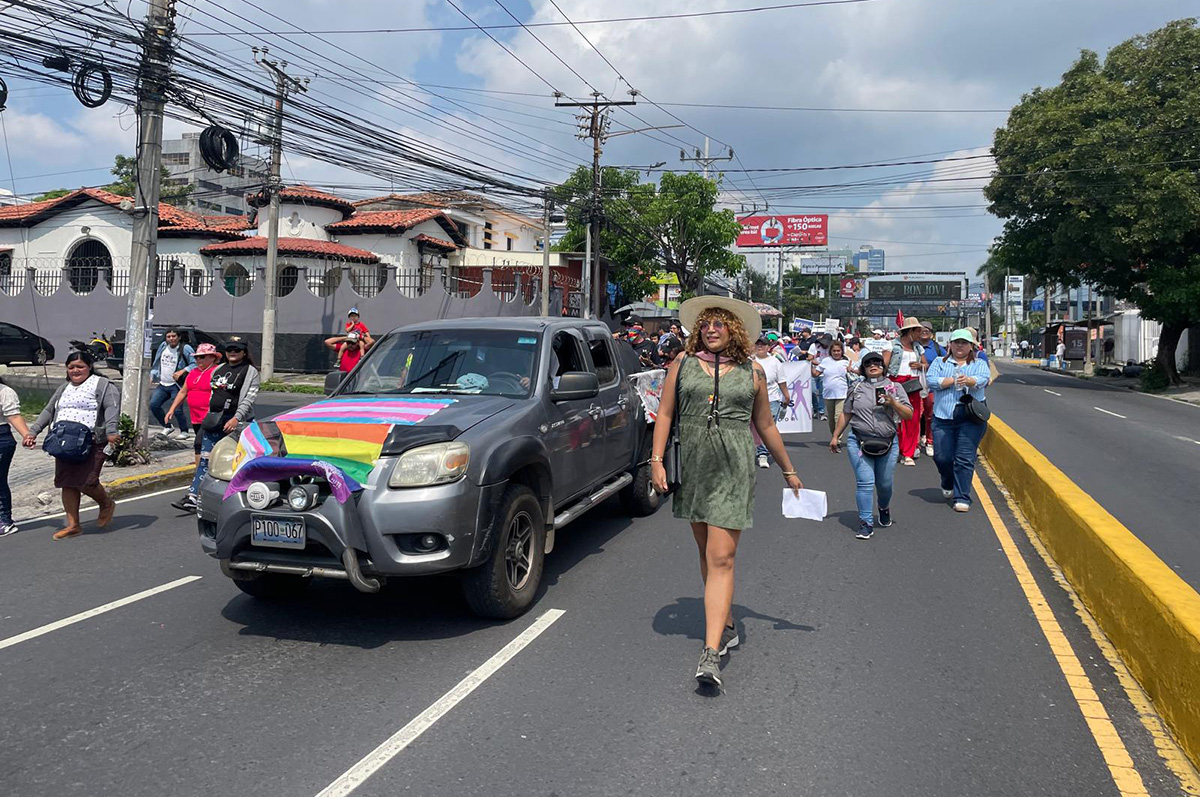
Chávez también asegura que para las personas que tienen expresiones de género diferentes a la norma u orientaciones sexuales diferente a la norma, es urgente que existan leyes de protección laboral y así las pocas personas que puedan entrar a un empleo más formal, no tengan que pasar por estas experiencias de no ser contratadas por su expresión de género o ser despedidas por lo mismo.
El decreto 56, fue un decreto emblemático que es mencionado siempre por activistas LGBTQ, ya que fue la primera vez que se tuvo la oportunidad de tener algún respaldo jurídico contra la discriminación en el ámbito laboral que lastimosamente solo tenía cobertura en el sector público, con empleados de gobierno.
Por su parte, una activista independiente de la diversidad sexual, que prefirió no revelar su nombre por razones de seguridad, lamentó la fragmentación actual del movimiento LGBTQ en El Salvador.
“Estamos en un contexto político donde las organizaciones tienen miedo o están cooptadas. Hay silencio, no hay propuestas, no hay diálogo. La comunidad diversa está siendo relegada también desde dentro”, señaló.
Ambas voces coinciden en que, hay mucho trabajo pendiente por hacer en favor de una población históricamente excluida, preocupa la situación en un país donde los discursos oficialistas y religiosos aún promueven la discriminación y la invisibilidad de las realidades LGBTQ en las agendas públicas.
La marcha del 1 de mayo volvió a ser un espacio donde convergieron múltiples voces, cuerpos y luchas. Desde sindicatos históricos hasta organizaciones estudiantiles, pasando por expresiones artísticas y personas independientes, la movilización dejó claro que las calles siguen siendo un escenario vital para demandar justicia social.
Aunque marcada por ausencias, como la escasa participación visible de colectivos LGBTQ, la marcha demostró que existen ganas de seguir alzando la voz, aunque sea desde distintas formas de expresión. Ya sea a través de pancartas, consignas o performances, las y los participantes coincidieron en una demanda central: respeto a los derechos laborales, condiciones dignas de trabajo y una vida libre de explotación.
En un contexto donde se criminaliza la protesta, se debilita la negociación colectiva y se precariza el empleo, el Día Internacional de las y los Trabajadores no fue solo una conmemoración, sino una reafirmación de que la lucha continúa. Una lucha plural, creativa y persistente que no se detendrá hasta que cada persona trabajadora, sin importar su identidad o condición, pueda vivir con dignidad.
-

 The Vatican15 hours ago
The Vatican15 hours agoAmerican cardinal chosen as next pope
-

 a&e features21 hours ago
a&e features21 hours agoYour guide to the many Pride celebrations in D.C. region
-

 U.S. Supreme Court3 days ago
U.S. Supreme Court3 days agoSupreme Court allows Trump admin to enforce trans military ban
-

 District of Columbia2 days ago
District of Columbia2 days agoWorldPride permits for National Mall have yet to be approved

